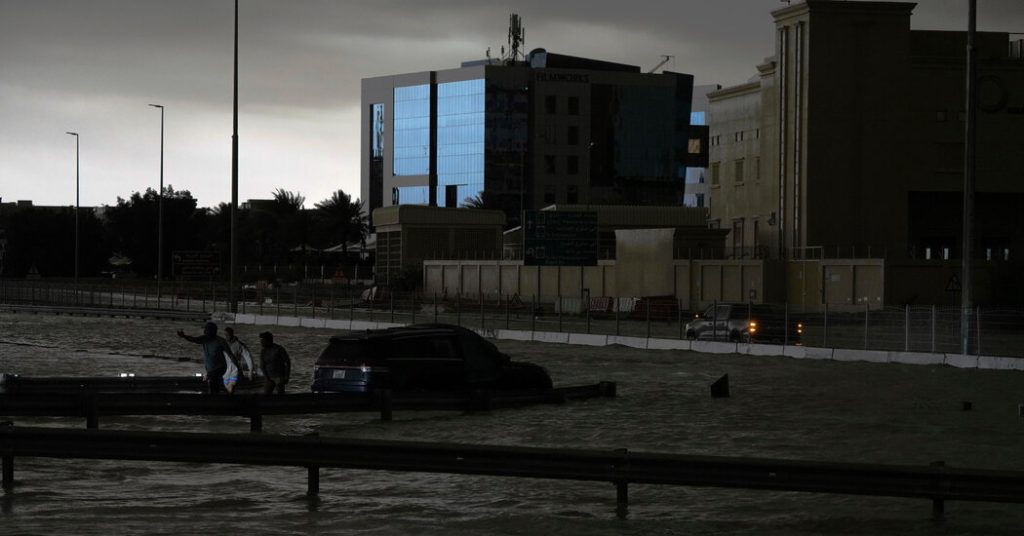Record levels of rainfall have caused chaos in the United Arab Emirates and Oman, leading to at least 19 deaths in Oman and flights being diverted from Dubai’s airport. In the U.A.E., authorities advised residents to stay at home as videos surfaced showing flooded highways and runways in Dubai. Flash flooding in Muscat, Oman’s capital, turned streets into raging rivers. Experts attributed the extreme deluge to climate change supercharging a regular rainy weather system that hit the region.
The storm first hit Oman on Sunday, causing widespread flash flooding and prompting officials to close schools and government offices. By Wednesday morning, at least 19 deaths had been confirmed, including an infant and ten schoolchildren who were swept away in a vehicle with an adult. Some schools remained closed in Oman on Wednesday, and some government employees were advised to work from home. In the U.A.E., the largest rainfall event in 75 years occurred on Tuesday, with one area receiving 10 inches of rain in less than a day.
Dubai International Airport, one of the world’s busiest, experienced delays, diversions, and a temporary suspension of operations due to the storm. Emirates, the national airline, suspended check-in services for passengers departing from the airport until midnight. Muscat International Airport also faced delays and cancellations, although some flights were operating on time. Speculation around recent cloud seeding efforts in the U.A.E. as a possible contributor to the extreme weather was debunked by scientists, who stated that rainfall enhancement could not have caused such a significant increase in rainfall.
Climate scientists pointed to ocean and atmospheric warming as key factors in intensifying the extreme weather event. The low pressure system moving over the Arabian Peninsula and Gulf of Oman interacted with parts of the jet stream, resulting in heavy rainfall. Rising air and sea temperatures have increased ocean evaporation, leading to more moisture in the atmosphere and contributing to larger and more intense rainfall events. Climate scientist Janette Lindesay emphasized that global heating likely played a significant role in the severity of the recent extreme weather in the region.
The aftermath of the severe rainfall in Oman and the U.A.E. is expected to require significant recovery efforts, with authorities cautioning residents to remain vigilant. The unprecedented levels of rainfall and flooding have highlighted the impact of climate change on extreme weather events. Experts continue to monitor and study the weather patterns in the region to better understand the role of global heating in the intensification of rainfall events. The recent events serve as a stark reminder of the need for climate action to mitigate the effects of climate change and prevent further extreme weather events in the future.


